Humboldt Research Fellowship Alumni
In this section, we will annually feature the collaborations, networks, and global career paths of several US alumni of the Alexander von Humboldt Post-Doctoral Research Fellowship Program.
In 2015-2016, we are recognizing alumni with a demonstrated commitment to: American Friends and the Alexander von Humboldt Foundation; facilitating German-American collaboration; inspiring the next generation of Humboldtians; and organizing Kollegs, campus visits, and other events. We also recognize those who have contributed innovative research to their field.
For more information about the Humboldt Research Fellowship, please click here.
Humboldt Research Fellow Profiles
Donald Dickson, Ph.D., Humboldt Research Fellow, English (1992-1993)
On The Personal and Professional Rewards of International Research
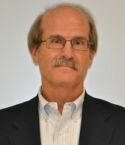
Donald Dickson first learned of the Humboldt Fellowship through a friend who had recently returned from a year at Freiburg im Breisgau who spoke glowingly of his Humboldt experience. Having spent a number of years in Wiesbaden and Heidelberg as the son of an American soldier, Professor Dickson was eager to experience Germany again on his own. His eighteen months in Erlangen with Professor Karl Josef Höltgen gave him access to archives in Germany and England as well as the time necessary to make a contribution to the intellectual history of early modern Europe with The Tessera of Antilia: Utopian Brotherhoods & Secret Societies in the Early Seventeenth Century (1998). It was equally rewarding for him to teach and interact with older, more cosmopolitan students in the seminars he co-taught with Höltgen on Hamlet and on Metaphysical Poetry. Professor Dickson found himself fascinated by the culture of the German university. The first department meeting of the semester was followed by lunch in a quaint Gasthaus in a nearby village capped off by a tour of the chapter house of an old Augustinian priory. On another memorable occasion, the dean of the Philosophische Fakultät treated the faculty to a witty address called the “Karpfenrede” at a dinner meeting where they sampled the Franconian delicacy of carp. His research fellowship also afforded him the opportunity to meet a number of German scholars, creating personal and professional linkages which have extended to his participation in numerous conferences in Germany over the years. The experience affected him so greatly that he has remained eager to organize alumni activities, and hosts annual meetings of Humboldtians in Texas in order to draw younger colleagues and graduate students to the foundation.
Host Institute: Universität Erlangen-Nürnberg
David Featherstone, Ph.D., Humboldt Research Fellow, Molecular Neuroscience, 2009-2011
Facilitating Communication and Understanding
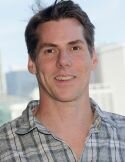 Neuroscientist David Featherstone says that science and art are exactly the same endeavor. Both are byproducts of evolution’s relentless drive to optimize the function of our cortex, which is the part of our brain most enlarged from that of other primates, and required for self-awareness, problem solving, and communication. In other words, we are biologically driven at the deepest levels to understand the world around us and then try to communicate that understanding to others. Dr. Featherstone thinks that the only difference between scientists and artists is that scientists struggle mostly with understanding while artists wrestle with the communication. But successful scientists and artists both ultimately do the same thing: They change how the rest of us see the world. This highlights what Dr. Featherstone (who started his undergraduate studies in art but now does molecular neuroscience research), loves most about the Alexander von Humboldt Foundation: It facilitates understanding and communication within and between academic disciplines, unrestricted by national borders. He thinks there is no better way to promote humankind’s highest ideals.
Neuroscientist David Featherstone says that science and art are exactly the same endeavor. Both are byproducts of evolution’s relentless drive to optimize the function of our cortex, which is the part of our brain most enlarged from that of other primates, and required for self-awareness, problem solving, and communication. In other words, we are biologically driven at the deepest levels to understand the world around us and then try to communicate that understanding to others. Dr. Featherstone thinks that the only difference between scientists and artists is that scientists struggle mostly with understanding while artists wrestle with the communication. But successful scientists and artists both ultimately do the same thing: They change how the rest of us see the world. This highlights what Dr. Featherstone (who started his undergraduate studies in art but now does molecular neuroscience research), loves most about the Alexander von Humboldt Foundation: It facilitates understanding and communication within and between academic disciplines, unrestricted by national borders. He thinks there is no better way to promote humankind’s highest ideals.
Host Institute: Freie Universität Berlin and Max-Planck-Institut für Experimentelle Medizin, Göttingen
Adam Jones, Ph.D., Humboldt Research Fellow, Biochemistry (2011-2013)
Learning Techniques Firsthand from German Scientists
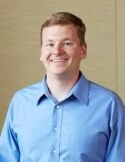
Dr. Adam Jones became interested in conducting research in Germany as a Ph.D. student at Scripps Institution of Oceanography at the University of California, San Diego. “I was very impressed with the aptitude and skill of my colleagues visiting from Germany,” he said. Inspired by a close collaboration with a colleague who had received her Ph.D. from his host lab in Germany, Dr. Jones spent two years as a Humboldt post-doctoral research fellow expanding his scientific skill set by learning firsthand from German scientists techniques originally developed in Germany at the University of Tübingen. Later, Adam served as a AAAS Fellow on the Germany Desk at the U.S. Department of State. There his portfolio included topics both inside and outside of science, spanning the full range of the most pressing foreign policy concerns on which the United States and Germany work closely together (e.g. Ukraine, the Middle East, Ebola, climate change, and other areas). This spring Dr. Jones participated in two American Friends workshops on Strengthening U.S. Participation in International Research Collaborations. The former workshop featured a presentation from the German Federal Ministry of Education and Research (BMBF) on the common challenges as well as the differences in the approaches of U.S. and German governments to global science. The latter workshop on the role of universities, academies, and scientific societies in international S&T collaboration allowed Dr. Jones to reflect on his own experience as a Humboldt fellow, during which he met German President Joachim Gauck, attended a microbiology summer school in Dubrovnik, Croatia, and gave science presentations in several European countries. Overall, he feels scientists do a great job working directly with one another to foster collaboration. He notes that U.S. embassies abroad are often willing to host a scientific talk or promote a science-themed event, as they appreciate the opportunity to interact with U.S. scientists who are visiting on travel or engaged in longer term research efforts like those afforded by the Humboldt Foundation. Dr. Jones would love to return to Europe someday for another long-term stay. (Photo credit: Weber Shih)
Host Institute: University of Tübingen, Germany
Timothy Moore, Ph.D., Humboldt Research Fellow, Classical Philology (1999-2000)
For a Classical Philologist, Working in Germany is Returning to One’s Roots
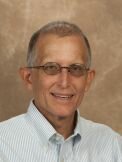
Classical Philologist Timothy Moore has recently helped bring two underserved areas to a new Classics Ph.D. program at Washington University in St. Louis- ancient music and ancient performance. His Humboldt research and collaborations, first as Humboldt Research Fellow in Germany, and then as a Lynen and Calder Research Fellow host, have been especially profitable in this regard, resulting in joint conferences and papers. Known for developing in the nineteenth and early twentieth century many of the central methodologies still used by philologists, “Germany has remained a ‘powerhouse’ in the study of ancient Greece and Rome,” he said. At Universität Freiburg, Professor Moore joined one of the most dynamic centers for the study of Roman comic theater; in Berlin, as a Renewed Research Fellow he gained access to vast resources at the Freie Universität, Humboldt Universität, and the Staatsbibliothek. Professor Moore’s teachings have extended beyond the classroom. For example, Music in Roman Comedy (Cambridge University Press), a book Professor Moore worked on in Berlin and Freiburg, clarifies what it means that Roman comedy was very much musical comedy. “Roman Comedy in Performance,” a 2012 summer institute for university faculty funded by the NEH, which was directed by Professor Moore together with University of North Carolina Classics Professor Sharon James, explored – through productions of scenes from Roman plays (in Latin and English) – how various performance elements affect the interpretation of those plays. Videos of the institute’s performances have been viewed over 16,000 times in 114 countries.
Host Institutes: Freie Universität Berlin and Universität Freiburg
Sally Sedgwick, Ph.D., Alexander von Humboldt Research Fellow, Philosophy (1988-1989; 1997-1998)
Collaboration at Home and Abroad
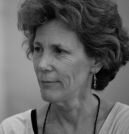
Philosopher Sally Sedgwick knows the value of exposure to academic environments outside of one’s “home” environment. She has organized two Humboldt conferences, “The Aesthetics and German Philosophy” in April 2012 with an American Friends Alumni Council Grant and, “The Norms of Freedom in Kant and Hegel” in April 2013 with a . These events allowed her and other professionals exchange ideas, to share grant opportunities, and to network with colleagues at institutions in Chicago and further afield. As a specialist in German philosophy, she has become comfortable giving papers and discussing philosophy in German, and feels her exposure to German (and European) research and researchers has greatly shaped and enriched her thinking. Professor Sedgwick counts two recent events among the highlights of her international career: the publication of her 2012 book Hegel’s Critique of Kant (Oxford University Press), the culmination of several research visits abroad and over a decade of work, and a four-hour workshop (in German and English) on one of her papers this past June in Berlin, which brought together graduates and post-docs from the USA, Spain, and Australia. Professor Sedgwick has enjoyed and enjoyed and benefited from not only collaborating with European faculty but with their students. “It is inspiring to interact with young philosophers excited about ideas and eager to find a place in the profession.”
Host Institute(s): Albert-Ludwigs Universität Freiburg and Humboldt Universität Berlin
Dave Westenberg, Ph.D., Humboldt Research Fellow, Microbiology (1991-1993; 2005)
Collaboration and Communication – Promoting Opportunities Abroad
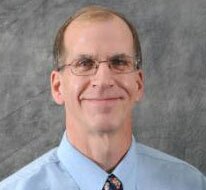
Dr. David Westenberg was first attracted to research in Germany as an opportunity to work in one of the top microbiology labs in the world. His time in Goettingen had a profound impact on his career that led to successes in both his personal and professional life. As a young Humboldt Research Fellow, Dr. Westenberg was impressed by a more applied view on which problems were important to study as well as communicating the benefits of research to the public. He experienced a much stronger collaborative environment among his colleagues across different research groups and saw graduate students benefit greatly from strong departmental support. These collaborative traditions have stuck with him, and he has made a concerted effort to implement them into his own independent research programs since.
Dr. Westenberg’s research stay inspired him to give back by promoting awareness of the advantages of international experience and encouraging his students and colleagues to pursue various opportunities abroad. Most recently, he was named a DAAD research ambassador, acting as a liaison for international research partnerships between German and U.S. academics. He finds that he is most successful in stimulating interest when he and others share personal stories about their experiences as faculty or students. While he focuses on the academic advantages of an international research experience, he makes sure to elaborate on the personal rewards of his experiences abroad as well. In Dr. Westenberg’s case, his daughter had a remarkable experience during his second research stay in Germany, making new friends and learning the German language—a shared experience that strengthened their family bonds and is a source of fond memories ten years later.
Host Institute(s): Universitaet Goettingen and Philipps-Universitaet Marburg

